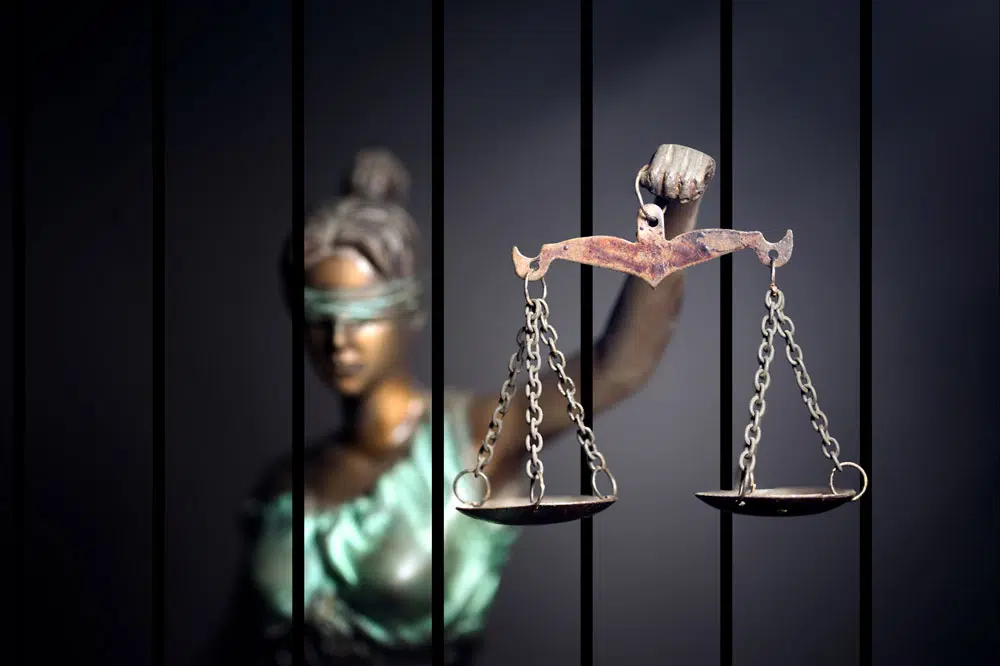You (or your ex) are a convicted felon. You (or your ex) want custody of your child. What are the chances?
Crimes Involving Morals and Decency
If you or your ex have been convicted of any of 17 different sex offenses in Virginia, you operate under a different set of rules from the average parent.
Virginia Code § 18.2-370.2 specifically prohibits you (or your ex) from being within 100 feet of any child, with one important caveat, which we here underline and emphasize:
- Every adult who is convicted of an offense prohibiting proximity to children, when the offense occurred on or after July 1, 2008, shall as part of his sentence be forever prohibited from going, for the purpose of having any contact whatsoever with children who are not in his custody, within 100 feet of the premises of any place owned or operated by a locality that he knows or should know is a playground, athletic field or facility, or gymnasium
For good or for bad (depending on which of the parents is the convicted felon), being a convicted felon does not automatically prevent you from having custody (partial or full, physical or legal) of your own children.
Free Felons & The Restoration of Rights in Virginia
Virginia has six categories of felonies, with only the first and second class felonies keeping a person out of circulation more or less forever (Class 1 = life imprisonment; Class 2 = 20 years to life). If you (or your ex) have been convicted of a Class 3, 4, 5, or 6 felony, you may have moved on with your life after as little as one year in jail.
Freed felons, after paying “their debt to society,” have to work hard to restore the rights they gave up by their criminal behavior and subsequent conviction. Those sacrificed rights are civil rights, not natural rights.
Lost Rights
The Secretary of the Commonwealth offers this list of the civil rights you lose as a felon:
- The right to vote
- The right to serve on a jury
- The right to run for public office
- The right to become a notary public
- The right to carry a firearm
No mention is made of the “right to parent a child,” the “right to have custody of a child.” Biological rights are “natural rights,” like life, liberty, and the pursuit of happiness. Those words sound almost trite, but they were on the lips and quill tips of our Founding Fathers, including Virginia’s own Thomas Jefferson and James Madison.
Convicted felon or not, you cannot lose your rights to marry, procreate, parent, and raise a family. State and federal governments may put up legal obstacles to any of those natural rights by taking away other freedoms due to your illegal behavior. Convicts, for instance, struggle every day to parent from within prison walls; prisons routinely offer inmates conjugal visits with a goal of preserving marriages.
The governments of Virginia or the United States cannot easily order you, for example, not to marry, not to father a child, not to raise a child under your choice of religion.
Fits and Fitness to Parent
If your ex is the convicted felon, you may throw a fit to think she could get even partial custody of your children. Yet she may be considered a fit parent in the eyes of Virginia law.
The test for parental fitness is not “did she commit a felony?” but “does she uphold the best interests of the child?”
The tests for custody and visitation are found in Code of Virginia § 20-124.3, which nowhere uses the word “felon.” The closest you can get to connecting a convicted felon to loss of custody is with these two subdivisions:
- Any history of (i) family abuse as that term is defined in § 16.1-228; (ii) sexual abuse; (iii) child abuse; or (iv) an act of violence, force, or threat as defined in § 19.2-152.7:1 that occurred no earlier than 10 years prior to the date a petition is filed. If the court finds such a history or act, the court may disregard the factors in subdivision 6; and
- Such other factors as the court deems necessary and proper to the determination.
If you are on the other side of this equation (if you are the convicted felon), your family law attorney can make a persuasive argument that you have paid your debt to society and are seeking to rebuild a successful family life after divorce. You need to lead a squeaky-clean life and you have the additional hurdle of subdivision 6:
- The propensity of each parent to actively support the child’s contact and relationship with the other parent, including whether a parent has unreasonably denied the other parent access to or visitation with the child;
Your ex-spouse could reasonably refuse your visitation with your children if she fears for the children’s safety. That is what subdivision 9 means by “the court may disregard the factors in subdivision 6,” since she was working in “the best interests of the child,” i.e., not letting you anywhere near your own children out of a concern for their safety.
Similarly, of course, you and your family law attorney can fall back on subdivisions 6 and 9 if you are advocating for full custody because your ex is the recently convicted felon.
The law is neither automatic nor all encompassing. You and your attorney will have to make your case to a Virginia Circuit Court judge (or, after the divorce, a Juvenile & Family Relations Court judge) that your ex, a convicted felon, should not have custody of your kids.
The Firm For Men works tirelessly every day to protect the rights of Virginia’s men and their vulnerable children. Please contact us immediately or telephone our Virginia Beach offices at (757) 383-9184 if you need legal help involving child custody or unsafe living conditions for your children.

